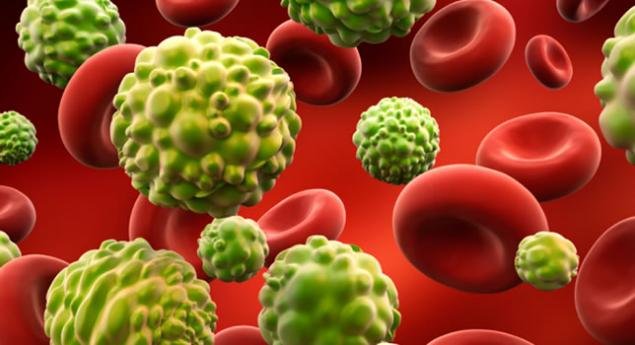
Cancer is the uncontrolled proliferation of cells. Environmental causes (such as chemical, radiation, viruses) and structural causes (such as hormonal, immune disorders, hereditary mutations and other genetic causes) can cause cancer over many years by affecting cells together or sequentially. Dietary habits can also be a factor in the formation of cancer. Among the nutritional factors that cause this; wrong food choice and malnutrition, being overweight, and lack of physical activity.
While the most common types are lung and stomach cancer for men, it is breast and cervix cancer for women.
Especially breast, large intestine-rectum and blood cancers are more common in obese individuals than in normal weights. High fat consumption causes obesity. Fatty foods and spoiled fat consumption also cause an increase in the intake of cancer-causing and promoting substances. Excessive intake of all kinds of fat increases the risk of formation of breast, prostate, testis, uterus, ovarian and large intestine-rectum cancers. Carcinogenic substances (cancer-causing) oil It accumulates in it and excess fat intake increases the entry of these substances into the body. Sex hormones are structurally similar to fat. Excessive intake of fat disrupts the working order of these hormones.
The production of substances such as bile salts, which promote cancers of the large intestine-rectum, increases as oil intake increases. Liquid oils rich in polyunsaturated fatty acids are easily oxidized. The elements formed as a result of oxidation cause the wear of immune cells and increase the risk of cancer.
Breast, uterus, prostate, large intestine-rectum, pancreatic and kidney cancers are more common in countries that consume excessive meat, therefore animal protein is more common in countries that consume less animal protein. It is known that consumption of lean animal protein is not associated with cancer. Consumption of lean meat, milk and similar foods does not increase the risk of cancer.
Studies; showed a negative relationship between fruit, vegetables, whole grains, dietary fiber, some micronutrients, fats (omega-3 fatty acids, especially omega-3/omega-6) and physical activity and cancer risk. It is known that there is a positive relationship between total fat intake/some fats (saturated fats, etc.), obesity, body mass index, food preparation methods (salting, smoking, curing, pickles, cooking at high temperatures, etc.) and cancer.
Obesity – Prostate Cancer
It has been reported that abdominal obesity and increased waist/hip ratio in men are risk factors for prostate cancer. Obesity carries an even greater risk, especially in prostate tumors that tend to spread (metastasize). Although the results of studies examining the relationship between body mass index and prostate cancer are different, high levels of leptin hormone, high insulin and IGF-1 (Insulin Growth Factor-1) increase the risk of disease.
Obesity – Breast Cancer
Breast cancer is reported to be closely related to abdominal obesity. As the adipose tissue in the abdominal and hip regions increases, the risk of cancer also increases. This effect is related to the woman’s menopause period. Although the risk of cancer in menopausal women is low, the risk is increased in postmenopausal obese women. Estrogen, which is necessary before menopause, is produced by increased adipose tissue. Estrogen-sensitive tissues stimulate the release of this hormone in obesity. This causes the tumor to grow.
Another relationship between breast cancer and obesity is that the tumor is detected at a later stage in obese patients. It is reported that the height in the Body Mass Index is an important factor in this. Fat distribution in the body also affects the risk of breast cancer.
Obesity – Uterine Cancer
Obesity; It has been associated with cancer of the endometrium (the tissue that forms the inner surface of the uterus). Although the exact cause is not known, it has been stated that high estrogen and insulin levels may cause this in obese people. The increase in estrogen production in adipose tissue cells is one of the explanations for the increased risk of endometrial cancer in obese women. It is thought that 40% of endometrial cancers may be caused by obesity.
Obesity – Colon Cancer
Colon cancer is also more common in obese individuals. Especially in males, a stronger correlation was found between the increase in BMI and colon cancer compared to females. Unlike breast and endometrial cancers, it has been reported that estrogen hormone is protective against colon cancer in women. However, the balance between obesity and estrogen can also trigger colon cancer. The risk of colon cancer is increased in women who take estrogen in the pre- or postmenopausal period with a high BMI. It has been reported that the risk of colon cancer increases by 50% in individuals aged 30-54 with a BMI of 30 and above.

